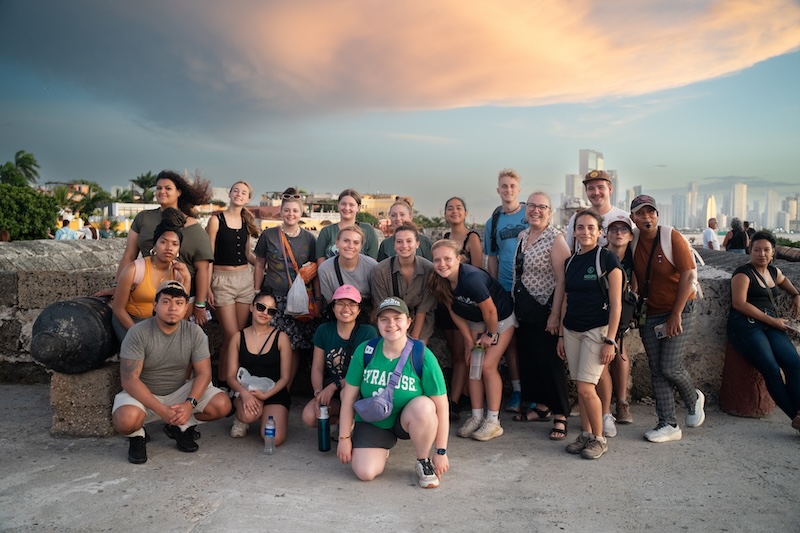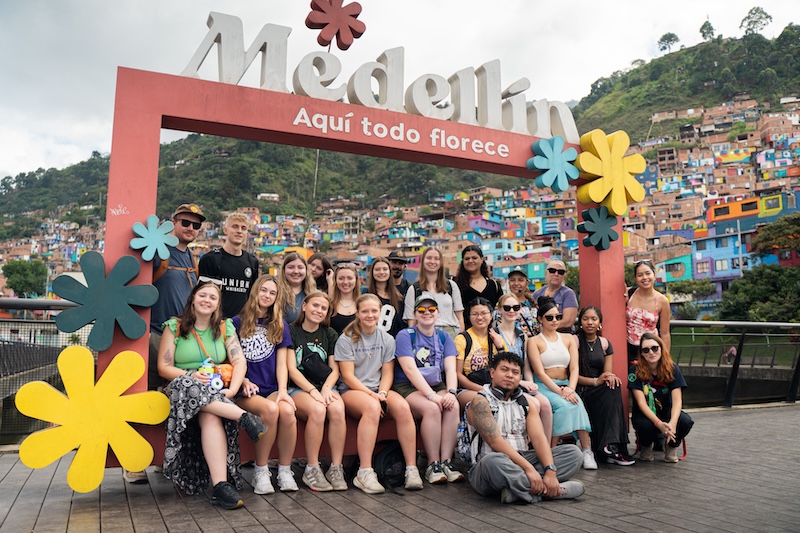Travel insights from Latin America
Author Jay Munro | Published on May 28, 2025
For many students, a study abroad program sounds life-changing – but paying for it can feel intimidating.
Study abroad trips, like alternative break programs, give students precious opportunities to gain real-world skills, grow through service, and boost future job prospects.
With programs available across the U.S. and international destinations like South America, these experiences can be life-changing – but often come with a daunting price tag.
Here’s the good news: it doesn’t have to stop you. This blog gives you a breakdown of proven, student-tested strategies to raise funds and make your study abroad dream a reality.
Let’s dive in!
Host an event
Organizing a trivia night, raffle, or sports tournament is a classic and effective way to raise funds.
To keep costs low, you can ask local businesses or community members to donate prizes, and partner with a venue that’s willing to offer their space at no cost.
The venue will normally keep bar or food profits, while you’ll pocket all the entry fees or donations collected at the door. It’s a win-win for both parties and helps build local community support for your cause!
Sell something
Many students prefer to make cookies, sell t-shirts, or have a yard sale.
If you aren’t baking cookies or selling your own second-hand clothes, you can reach out to local businesses or partner with ethical craft producers.
Our partners at Nazareth University used the fundraising platform Fair Trade Caravans, which lets student groups raise money by selling ethically sourced products like coffee, chocolate, and handmade crafts, keeping 25% of every sale.
“It was so easy to set up,” says Courtney Calkins, alternative breaks student leader at Nazareth.
“We post on our Instagram account, hang up flyers around our campus, share all the information with friends and family, and ensure we are doing the best we can to make sure everyone knows about the fundraiser.”
Provide a service
If you are more hands-on, then offering a service to raise funds might be a better option, such as dog-walking, babysitting, or tutoring younger students.
You can manage everything independently by creating a simple booking system, collecting payments via PayPal or bank transfer, and promoting through flyers, social media, and school networks.
If all that sounds like too much work, you might prefer to work alongside a platform such as Givebutter who will build your page, collect payments, and offer promotional tools – but will also take a 3% cut of your earnings.
Tap into campus support
Many colleges offer grants and funding to kickstart your adventure to new lands. For example, Nazareth University supports students through a few different channels – their undergraduate association, their community engagement office, and also through their generous SPARK grant.
To find out what your college offers, start by contacting the student leaders of your alternative breaks program.
Tip: consult with your university before fundraising to ensure that you adhere to the institutional rules and guidelines.
Courtney added: “In the Alternative Breaks program at Nazareth, we do not do individual fundraising. We also do not use any crowdfunding programs, like GoFundMe.
“Nazareth University does not sanction this type of promotion of the school’s program’s by individuals so we do not partake in it.”
Ask for donations
Another popular way in which students can raise money for study abroad programs and alternative breaks is to ask your friends and family for donations.
If your university allows it, a crowdfunding page like GoFundMe, which is straightforward to set up and manage could work, but will also take a 3% cut of your proceeds.
You should check first with your Study Abroad or Community Outreach office to ensure that your college allows you to do this!
It’s better if your trip partners with a nonprofit such as the famous American Hiking Society, as they’ll provide a lot of valuable support such as setting up your page and managing donations. It makes it easy for donors to see for themselves just how meaningful your trip will be.
4 tips for success
However you decide to raise funds for your alternative break, you’ll need more than just a good idea to succeed. A successful fundraiser also depends on strong organization, a compelling message, and how well you promote it.
Here’s some advice to help you stay organized, motivated, and effective – no matter what kind of fundraiser you’re running.
Tip 1: Set a clear goal
It’s vital that your donors know exactly why you’re asking them for money. Be specific: how much do you need, and what will it cover? Emphasize the value of your trip – and how the communities you’ll serve will benefit from your experience.
Kagumu’s alternative breaks aren’t just trips of a lifetime – they’re immersive experiences where students support local initiatives and gain the skills to address challenges in their own communities.
Tip 2: Tell your story
People are more likely to give when they understand your motivation. Why did you choose this trip? What do you hope to learn or contribute? Make it personal, practical, and passionate – this is what will set your fundraiser apart!
Tip 3: Make it easy to give
Use donation platforms that accept Venmo, PayPal, or other major credit cards. Include QR codes on flyers, and link to your page in every post. The fewer steps it takes to donate, the better.
Tip 4: Promote, promote, promote!
Post on social media regularly, ask teachers to share your link, and post in group chats. You should also consider offline promotion such as flyers and announcements, and always keep your supporters updated on your progress.
Courtney Calkins believes fundraising can be more effective as a group effort. “We always encourage our participants to fundraise as it helps to keep the program affordable for everyone,” she says.

Courtney (front) with fellow Nazareth students in Colombia
Remember, say thanks
Sending thank-you notes to your supporters is a great way to round off your campaign. Send a quick message, tag them in a post, or mail a handwritten note. Some students even pledge to bring back small items from their trip as a thank-you for supporters.
This adds a personal touch and helps your fundraiser feel more meaningful and connected to your journey.
_________________________________________________________________________
However you end up fundraising, remember that your impact doesn’t begin when you land – it starts now, with the first dollar you raise. So set your goal, rally your community, and let the journey begin!

